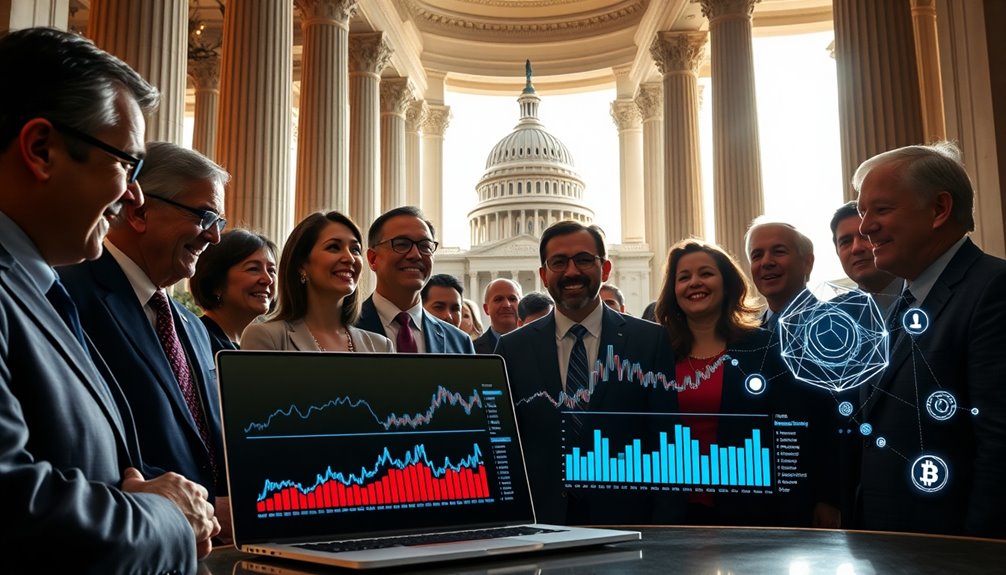As lawmakers on Capitol Hill grow more confident in cryptocurrency and artificial intelligence, proactive policy discussions are taking shape. You'll notice a bipartisan effort emerging, pushing for a regulatory framework that balances innovation with accountability. Recent bills underscore this commitment, but the complexities of digital assets raise questions. What challenges lie ahead as these discussions evolve? Understanding the implications could reshape the landscape of finance and technology.

As lawmakers on Capitol Hill ramp up their discussions on cryptocurrency policy, they're aiming to create a clear regulatory framework that fosters innovation while ensuring market integrity. This initiative has led to the formation of a bicameral committee, drawing on expertise from key Senate and House committees.
You'll find that Senator Bill Hagerty has taken the lead by introducing legislation to establish a framework specifically for stablecoins. His efforts build on the Financial Innovation and Technology for the 21st Century Act (FIT21), which serves as a solid foundation for future crypto legislation. Future regulation efforts to build on Hagerty's bill and FIT21 will be essential for establishing robust guidelines.
Senate Banking Chair Tim Scott has set an ambitious goal to pass relevant bills within the first 100 days of the new Administration. You might be surprised to learn that the crypto industry has increased its political spending to influence these policy decisions, which helps create a more favorable regulatory landscape for digital currencies. This momentum shows a growing confidence in the potential of crypto and AI.
David Sacks, now appointed as the Crypto and AI Czar, is at the forefront of these regulatory advancements. He leads the President's Working Group on Digital Asset Markets, which coordinates federal efforts to address digital financial technology.
Meanwhile, SEC Commissioner Hester Peirce champions the SEC's Crypto Task Force, which is focused on developing clear guidelines for digital assets. The Senate Banking Committee, guided by Scott, plays a crucial role in shaping these legislative efforts, alongside the House Financial Services Committee.
Several legislative proposals are emerging to further clarify regulations. For instance, the Stablecoin Transparency and Accountability Act seeks to create a framework for dollar-denominated payment stablecoins. The GENIUS Act is another initiative aimed at establishing a comprehensive regulatory framework for stablecoins.
As discussions evolve, lawmakers also aim to clarify rules for crypto exchanges, determining which assets should be classified as securities or commodities.
You'll notice that bipartisan support is a significant focus, as achieving consensus on stablecoin regulations could pave the way for broader crypto legislation. Additionally, the ongoing regulatory review by federal agencies may lead to modifications or repeals of existing regulations affecting digital assets.
This approach aims to provide the clear guidance necessary to promote innovation and support growth in the ever-evolving crypto landscape. As these discussions unfold, it's clear that Capitol Hill is beginning to recognize the importance of a well-defined regulatory framework for the future of cryptocurrency.










